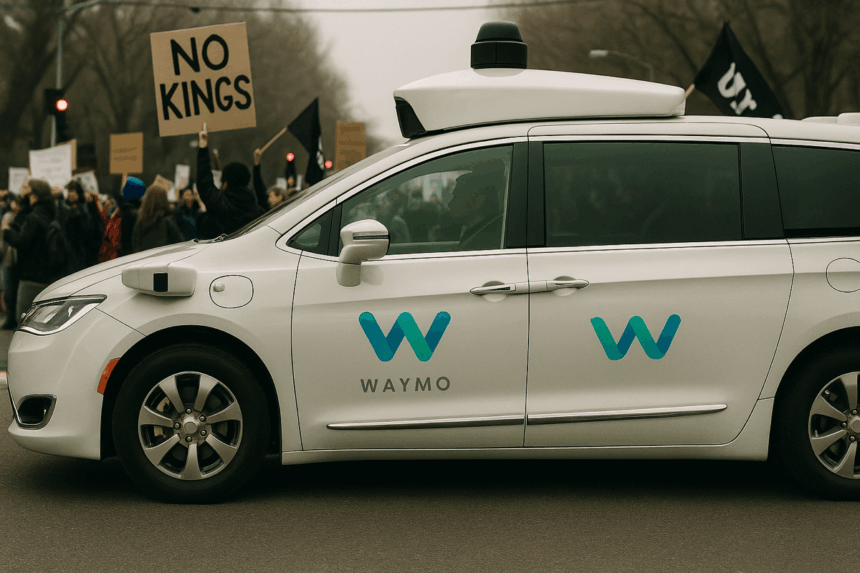Waymo, the autonomous vehicle pioneer owned by Alphabet, faces rising threats to its fleet amid nationwide protests against US immigration policies. After multiple robotaxis were attacked and set on fire in Los Angeles, Waymo scaled back services in key US cities to protect its assets. The company’s response highlights the challenges of operating driverless fleets amid civil unrest and public skepticism.
What’s Happening & Why This Matters

Recent anti-ICE protests in Los Angeles targeted Waymo’s robotaxi vehicles. At least six cars were damaged last weekend, with three set ablaze. These attacks forced Waymo to pause operations entirely in Los Angeles and scale back service in San Francisco, Austin, Atlanta, and Phoenix, according to reports from Wired and the Los Angeles Times.
Waymo previously suspended its downtown LA service earlier in the week. The company has not specified when it will resume full operations. The costly robotaxis, each valued at over $100,000, represent significant investments vulnerable to unrest.
This is not Waymo’s first brush with civil disruption. In February 2024, a driverless vehicle was set on fire in San Francisco’s Chinatown. Additionally, a man faced charges for slashing the tires of 17 Waymo vehicles in the same city.
Opposition to driverless taxis in California remains strong, with concerns about safety risks and job displacement voiced by residents and emergency services. Protesters may also object to the data-sharing practices of robotaxi companies. For example, the Los Angeles Police Department recently released footage from a Waymo vehicle’s camera to aid a hit-and-run investigation.
Ahead, Tesla plans to roll out its robotaxi service in Austin later this month. The launch faces scrutiny from critics like Tesla skeptic Dan O’Dowd, who alleges safety flaws in Tesla’s self-driving tests. This competitive pressure adds to the challenges Waymo faces in public acceptance and operational security.

TF Summary: What’s Next
Waymo’s scaling back of its robotaxi service amid protests underscores the vulnerability of autonomous fleets to social unrest and public distrust. Protecting these valuable assets while maintaining community trust is a delicate task.
New competitors, such as Tesla, alongside ongoing safety debates, are entering the autonomous taxi market. Monitoring these developments is required to understand the future of autonomous ride services in the US.
— Text-to-Speech (TTS) provided by gspeech


